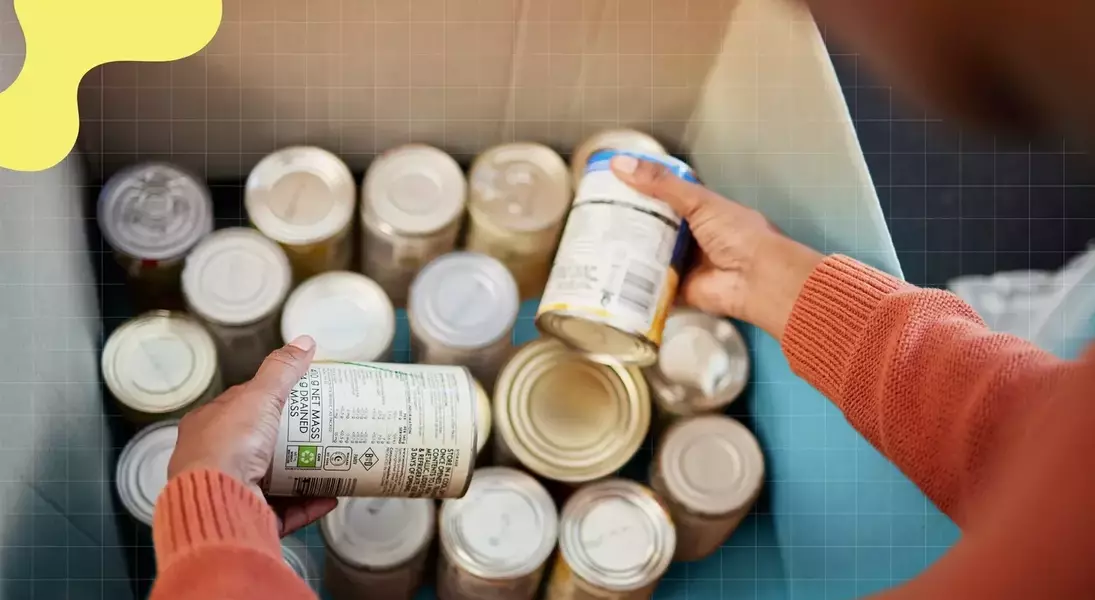
Donate Wisely: Maximize Your Impact, Minimize Waste
Understanding Donation Priorities: What Not to Give to Food Pantries
It's natural to want to clear out your pantry and contribute to community drives, especially during festive times. However, certain items, despite good intentions, are unsuitable for food banks. These organizations operate under strict safety and logistical protocols. Donating inappropriate goods can burden volunteers with sorting and disposal tasks, diverting resources from their primary mission of feeding the hungry. By being informed, you can ensure your donations are a true asset.
Compromised Packaging: Why Damaged or Opened Items are Unsuitable
Even minor imperfections can render food items unusable for distribution. Food banks prioritize safety above all else, meaning any product with compromised packaging—such as dented cans, torn dry goods, or items showing signs of water damage—will likely be discarded. These issues can indicate potential contamination or spoilage, posing health risks. Similarly, glass containers are often discouraged due to their fragility during transport. Always thoroughly inspect all items for an intact seal and perfect condition before donating.
The Critical Importance of Expiration Dates
While it may seem self-evident, many expired food products unfortunately make their way into donation bins. Recalling a firsthand experience of sorting through items long past their prime, some even decades expired, highlights the scale of this problem. It is imperative to meticulously check all expiration or 'best by' dates on every item you intend to donate. Food banks cannot distribute expired goods, so discarding them at home prevents unnecessary work for volunteers and ensures only safe food reaches recipients.
Avoiding Perishable Contributions: Beyond Fresh Produce
The term 'perishable goods' extends beyond just fresh fruits and vegetables to include dairy, meat, bread, and any items requiring refrigeration or freezing. These products are generally not accepted by food banks due to the challenges of proper storage and their rapid spoilage rate, which can lead to significant food safety hazards. Instead, focus on shelf-stable alternatives like canned fruits and vegetables, tinned fish, and evaporated milk, which are always valuable and easier to manage for pantries.
Selecting Appropriate Beverages for Donation
Not all drinks are suitable for food bank donations. Many organizations avoid high-sugar beverages such as sodas and some energy drinks. Similarly, refrigerated or perishable drinks like milk, smoothies, or certain juices are typically not accepted due to storage constraints and spoilage concerns. Alcoholic beverages and homemade drinks are strictly prohibited. Opt for universally needed and shelf-stable options such as bottled water, sealed ground coffee, tea bags, plant-based milks, powdered milk, 100% fruit or vegetable juices, and electrolyte drink mixes.
Why Non-Food Items and Supplements are Generally Excluded
While vitamins, supplements, and medications may seem helpful, they are usually not distributed by food banks, often due to concerns about product integrity, varying regulations, and the need for personalized medical advice. If you have non-food items, such as clothing, household goods, or pet food, it's best to find dedicated shelters or community drives for these specific donations. These specialized organizations are better equipped to distribute such items effectively. Always check with your local food bank for their specific policies on supplements and non-food contributions.
Maximizing Your Philanthropic Impact: Practical Donation Tips
When preparing your donations, adhere to the principle of giving items you would be happy to receive yourself. Dispose of anything damaged or expired, and keep all perishable items at home. To make the most impactful contribution, reach out to your local food bank or pantry. Inquire about their most pressing needs for the current season, as this can vary widely. They are the best resource for specific guidance on acceptable items and how to best support your community.
